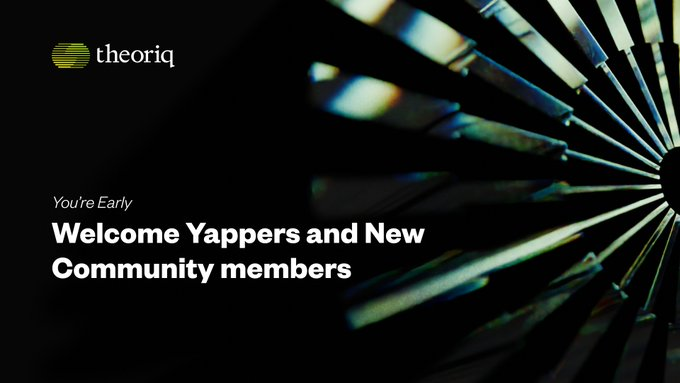In recent years, the integration of artificial intelligence and blockchain technology has become a core direction of innovation in Web3. Developed by ChainML Labs, the Theoriq Protocol is redefining AI agent collaboration and value distribution with its unique decentralized architecture. This technological breakthrough not only provides new tools for developers but also opens the door for ordinary users to participate in the AI economy.

From Centralized Monopoly to Decentralized Collaboration
The traditional AI field has long been monopolized by a few tech giants, with closed data and black-box algorithms limiting the accessibility of technology. The Theoriq Protocol leverages the transparency and decentralization of blockchain to build a verifiable AI agent network. Each AI agent (such as data analysis tools or trading strategy models) can access the on-chain ecosystem via smart contracts, and its contribution is quantified and recorded through a “Proof of Contribution” mechanism, earning corresponding token incentives.
This model breaks the centralized control of traditional AI services. For example, in the DeFi space, Theoriq’s AlphaSwarm toolkit allows developers to generate trading strategies using natural language, executed by multiple AI agents cooperating on cross-chain liquidity optimization. According to data from the protocol’s testnet in Q1 2025, connected DeFi protocols saw a 30% improvement in capital efficiency. Users wishing to optimize their portfolios can refer to JuCoin’s liquidity mining guide to learn how to enhance returns with AI agents.
Technical Architecture: Modularity and Scalability
The core strength of Theoriq lies in its modular protocol layer design. The protocol consists of an infrastructure layer and an application ecosystem layer:
Infrastructure Layer
Provides standardized on-chain interaction interfaces, supporting AI agent authentication, cross-chain communication, and data sharing. Developers can quickly deploy agents via the open-source Theoriq Agent SDK and integrate with multi-chain ecosystems like Solana and Ethereum.
Application Ecosystem Layer
Connects supply and demand through the Infinity Hub marketplace. Developers can upload and price AI services, while users choose tools based on the agent’s reputation and historical performance. This model is similar to an “AI App Store,” but with all transaction records fully traceable on-chain.
A recent collaboration with Phala Network has further enhanced the protocol’s security. By integrating Trusted Execution Environments (TEEs), Theoriq ensures the privacy of sensitive data (such as trading strategy parameters) when processed on-chain, paving the way for institutional-grade applications.
Future Challenges and Industry Opportunities
Despite Theoriq’s great potential, it still faces dual challenges:
-
Technical Complexity: Coordination among multiple AI agents requires high on-chain computational efficiency. A smart contract logic flaw in 2024 caused some agent strategies to fail, highlighting the importance of security audits.
-
Regulatory Compliance: The U.S. SEC has recently increased scrutiny on “AI+DeFi” hybrid protocols. Theoriq’s token economic model may need adjustments to comply with regulations in various jurisdictions.
Nevertheless, its potential impact has drawn industry attention. Analysts predict the following trends could emerge from the Theoriq Protocol by 2026:
-
AI Agents as a Service (AIAAS): Enterprises could directly call on-chain agents for compliance checks or market prediction models, reducing development costs.
-
Decentralized AI Training: DAO community votes could determine the training data sources for agents, addressing the ethical concerns of traditional AI.
For developers looking to deeply engage in Web3 innovation, JuCoin’s developer ecosystem support program offers full-cycle resources from tools to funding.
The Next Decade of Web3: Autonomy, Collaboration, Trust
The significance of the Theoriq Protocol goes far beyond the technology itself—it marks the transition of Web3 from an “Internet of Value” to an “Internet of Intelligence.” When AI agents can collaborate autonomously and distribute value fairly, blockchain will truly become the trusted infrastructure of the global digital economy. Whether you are a developer, investor, or ordinary user, understanding this trend is key to seizing future opportunities.




